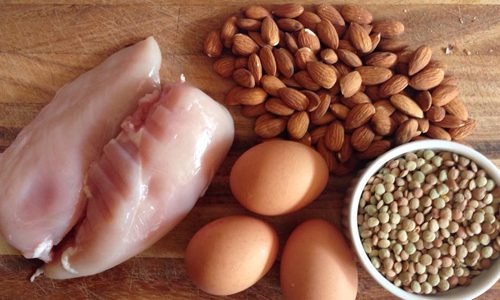“Protein timing for workouts” is a highly debated topic. Today, people realize the importance of exercising and an adequate protein intake. However, many of them have questions and doubts regarding their workout and food timings. A lot of research regarding the timings for protein intake has been done over the past few years because people want to know about the pros and cons of protein intake before and after exercising. In this blog, let’s understand which is best: pre or post workout protein?
Just as you need carbohydrates for energy, you need protein for bodybuilding and muscle repair. Adding protein-rich foods to your breakfast is a wise idea. Using the 8 protein packed breakfast ideas, you can easily include protein to have a balanced diet. Protein and carbs for workouts are crucial, but many people wonder if they are consuming enough of these nutrients per day at the right time.
If you are not sure about having your protein shake before or after workout, this blog will guide you in the right direction.
Protein Before Exercise
In case you have not eaten anything for three or four hours before your workout, drinking a protein shake will be beneficial. In fact, it’s one of the best methods of ramping up muscle-building. Having a protein shake as a pre-exercise diet is ideal for any type of workout.
However, there is a disadvantage to having protein before exercise. If you have a sensitive stomach, you might not be able to digest your protein well, which can lead to further complications. Therefore, if you face digestion issues when you consume protein before hitting the gym, you may have to change your protein timing.
Protein After Exercise
You might have friends and loved ones who always keep telling you what to eat after a workout. Many scientists and doctors recommend the intake of protein 30 minutes after workouts. Some of them advise that you should consume your protein between 30 minutes and 2 hours after exercising. But more research is required in this area.
There are several advantages to protein intake after exercise. It ensures faster recovery and quicker building of muscle tissues. Drinking a protein shake is the perfect way to have a healthy post-workout snack. But keep in mind that you must select a high-quality protein powder or shake as your post-exercise snack.
If you still have the question, “When to take protein?” in mind, let’s discuss more on the best protein timing.
Protein Before or After Workout
You need protein for performance and muscle building. Research and studies conducted over the years indicate that your total protein intake per day is of utmost importance, irrespective of whether you take it before or after your workout sessions. To put it in a nutshell, you need not worry about when to take protein powder.
The RDA or Recommended Daily Allowance for protein is 0.36 grams/pound. However, this might not be sufficient to support muscle recovery and growth. Therefore, individuals who strength train on a regular basis might have to consume twice the RDA.
Protein Timing and Meal Planning
You can take your daily dose of protein by dividing it into equal portions throughout the day. In other words, you can distribute your protein for the day by adding a specific quantity to each meal. This type of meal planning will help your body get the required amount of protein easily. Even though protein shakes for workouts are a good option, you can also consume other food items that are rich in protein. Some of them are pulses, eggs, chicken, lean meat, fish, and dairy products. Beans, tuna, salmon, broccoli, and cauliflower are also good sources of protein. However, some believe that plant protein has immense health benefits over red meat.
By now, you would have got the answer to your question, “Should I drink protein shake before or after workout?” The timing is not of much significance, and you can split your intake of this nutrient among your meals on any given day. Therefore, it’s not about pre or post workout protein. It’s all about the total grams of protein you have on a daily basis.




















